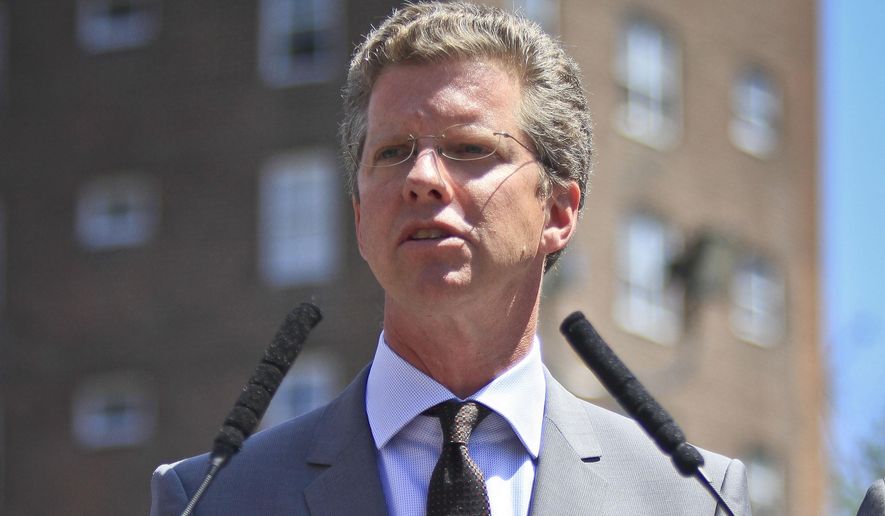A former Department of Housing and Urban Development official who stole more than $800,000 from the agency says he never would have been caught if he hadn’t helped reform the troubled loan office that hired him despite his own lengthy criminal record.
Brian Thompson said that HUD’s Office of Native American Programs, which backs housing loans, was in “massive disarray” when he was hired in 2011. Employees kept files scattered on the floor of their cubicles, and some banks were paid more than once because of a lack of internal audit checks, according to papers filed on Friday by Mr. Thompson’s attorney in federal court in Washington.
Soon after his hiring, however, Mr. Thompson pushed for the creation of a computer program to track loans guaranteed by the office, known by its acronym, ONAP. The program, still in use and known as “Brian’s system” inside HUD, used real-time tracking data and introduced safeguards that eventually saved the sprawling department time and money, according to defense papers.
However, the beefed-up oversight eventually exposed Mr. Thompson’s own scheme, in which he was diverting money from escrow agents to bank accounts he controlled.
“It is a bitter irony — and one Mr. Thompson does not shirk from acknowledging — that without the safeguards and second level reviews that he started putting in place in 2011, ONAP probably would not have been able to find out what he was doing two to three years later,” Mr. Thompson’s defense attorney wrote in a sentencing memo.
The ex-HUD official pleaded guilty to stealing $843,000 from the government by skimming proceeds from the sale of HUD-owned properties, and he faces more than three years in prison when he’s sentenced in federal court in Washington next month.
HUD officials are reviewing the circumstances of Mr. Thompson’s hiring after The Washington Times raised questions about how the agency failed to detect his prior run-ins with the law.
Federal prosecutors last week disclosed Thompson’s criminal history, including a 1980 armed robbery conviction and a series of “theft/larceny arrests and convictions” from 1984 to 2007, as well as a 2008 conviction for receiving stolen property.
However, in a memo seeking leniency for his client, attorney Justin Dillon said Thompson had a “negligible” criminal history. He said convictions for check deception and stolen property convictions stemmed from bounced checks that arose during disputes about construction projects.
“There is far less to them than meets the eye,” he wrote. Mr. Dillon also argued that Mr. Thompson’s crime was “victimless in all but the most technical sense.”
“He didn’t steal from innocent people,” he wrote. “He stole from the United States government.”
Mr. Dillon went on to note that the harm in the admitted embezzlement scam didn’t cause anyone to lose their savings.
“The government was simply deprived of an amount of money that would have accounted for .0017 percent of HUD’s almost $50 billion budget in 2012,” Mr. Dillon wrote in sentencing papers.
In an earlier sentencing memo, prosecutors said investigators still haven’t figured out what happened to all of the money, tracing some of it to large cash withdrawals and purchases at department stores, restaurants and travel.
Hired as a GS-13 loan guarantee specialist within the Office of Public and Indian Housing at HUD on May 23, 2011, Mr. Thompson didn’t resign until Nov. 20, which was nearly two months after he pleaded guilty to wire fraud in federal court in Washington.
A HUD spokesman said Mr. Thompson was on unpaid leave prior to his resignation. The spokesman acknowledged in a statement that “something should have definitely come up during the background check.”
• Jim McElhatton can be reached at jmcelhatton@washingtontimes.com.




Please read our comment policy before commenting.